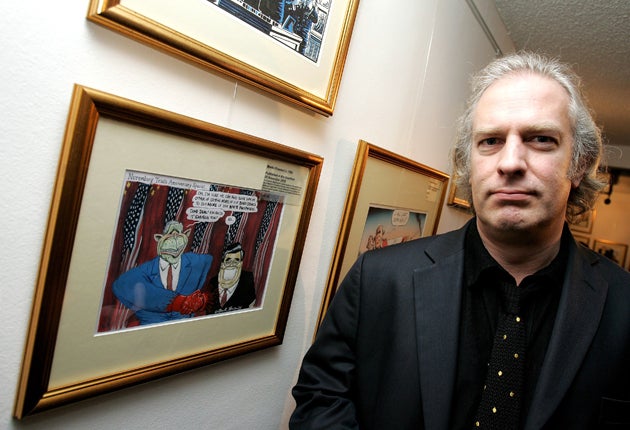No Triumph, No Tragedy, Radio 4<br/>A Doggerel Bard, Radio 4
Night thoughts that torment and sustain

Your support helps us to tell the story
From reproductive rights to climate change to Big Tech, The Independent is on the ground when the story is developing. Whether it's investigating the financials of Elon Musk's pro-Trump PAC or producing our latest documentary, 'The A Word', which shines a light on the American women fighting for reproductive rights, we know how important it is to parse out the facts from the messaging.
At such a critical moment in US history, we need reporters on the ground. Your donation allows us to keep sending journalists to speak to both sides of the story.
The Independent is trusted by Americans across the entire political spectrum. And unlike many other quality news outlets, we choose not to lock Americans out of our reporting and analysis with paywalls. We believe quality journalism should be available to everyone, paid for by those who can afford it.
Your support makes all the difference.In the past year and a half, the historian Tony Judt has written numerous articles, two books with another on the way, given talks, and taught a postgraduate course – standard issue for a high-flying academic and intellectual who's never been afraid to provoke, debate, dissent and discuss.
Except that 18 months ago he was diagnosed with motor neurone disease and is paralysed from the neck down, waiting to see which of the many side effects eventually kills him.
"Get up and go" sounds like the wrong phrase, but Judt's got tons of it. A thinker by profession – "If I was a plumber I'd be screwed," he acknowledges – he can carry on doing what he's always done best. In No Triumph, No Tragedy he told Peter White about the "exquisite torture" of the night, when he can take six hours to drift off to sleep. "'If I've got an itch, too bad. If I have a bodily need, it's just got to wait."
That's when he does most of his thinking. In his head he has what he calls "memory chalets": he'll go in the front door and into one of the rooms, where there might be a cupboard, and in that, say, a shoebox. In the box he'll deposit a thought. In the morning he'll recreate his previous night's tour, retrieving his thoughts from where he secreted them – and there are the bones of his latest piece or chapter.
Not that it's always so high-flown. White wondered who would be Judt's ideal imaginary night-time friend. "Sometimes I want to communicate with the brain of Baruch Spinoza," he said. "And sometimes I want to communicate with the body of Hedy Lamarr."
There was a keen sense of history in A Doggerel Bard, in which the stand-up poet Elvis McGonagall explored the world of satirical verse. He and his fellow travellers acknowledged debts to past giants: Martin Rowson read from Juvenal and A E Housman; McGonagall cited e e cummings and Adrian Mitchell; Hilaire Belloc was Attila the Stockbroker's inspiration, Ogden Nash Wendy Cope's; and Tim Turnbull spoke of his epiphany watching John Cooper Clarke in the 1970s: "I was enraptured by this glorious stick-insect man."
Clarke, who named as his inspirations John Betjeman "and all that 19th-century stuff that rhymes", still has a voice like Keith Richards' face. He has revisited one of his classics, "Beasley Street", renaming it "Beasley Boulevard" for the gentrification generation:
"Noodle bars, poodle parlours
...there's a pub but the regulars
are barred
It's an urban splash-art ghetto
gym
Beasley Boulevard."
You sort of get the feeling that if Clarke was paralysed from the neck down, he'd be firing on all cylinders, too.
Join our commenting forum
Join thought-provoking conversations, follow other Independent readers and see their replies
Comments